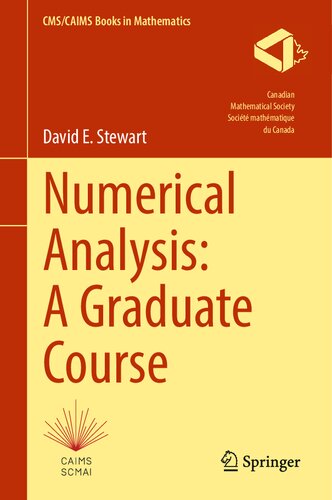

Most ebook files are in PDF format, so you can easily read them using various software such as Foxit Reader or directly on the Google Chrome browser.
Some ebook files are released by publishers in other formats such as .awz, .mobi, .epub, .fb2, etc. You may need to install specific software to read these formats on mobile/PC, such as Calibre.
Please read the tutorial at this link: https://ebookbell.com/faq
We offer FREE conversion to the popular formats you request; however, this may take some time. Therefore, right after payment, please email us, and we will try to provide the service as quickly as possible.
For some exceptional file formats or broken links (if any), please refrain from opening any disputes. Instead, email us first, and we will try to assist within a maximum of 6 hours.
EbookBell Team

5.0
78 reviewsMathematics Subject Classification: 65-01 • Introductory exposition (textbooks, tutorial papers, etc.) pertaining to numerical analysis
This book aims to introduce graduate students to the many applications of numerical computation, explaining in detail both how and why the included methods work in practice. The text addresses numerical analysis as a middle ground between practice and theory, addressing both the abstract mathematical analysis and applied computation and programming models instrumental to the field. While the text uses pseudocode, Matlab and Julia codes are available online for students to use, and to demonstrate implementation techniques. The textbook also emphasizes multivariate problems alongside single-variable problems and deals with topics in randomness, including stochastic differential equations and randomized algorithms, and topics in optimization and approximation relevant to machine learning. Ultimately, it seeks to clarify issues in numerical analysis in the context of applications, and presenting accessible methods to students in mathematics and data science.